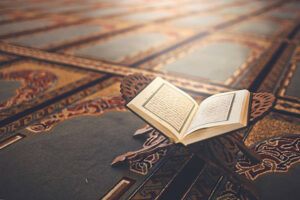 Hazrat Moulana Muhammad Ilyaas (rahmatullahi ‘alaih) once mentioned the following advice to a group of students:
Hazrat Moulana Muhammad Ilyaas (rahmatullahi ‘alaih) once mentioned the following advice to a group of students:
Always show respect to your teachers and honour them. This is an obligation upon you. You should revere and honour them in the manner the Imaams of deen are revered and respected, as they are the means of you acquiring the knowledge of nubuwwah.
The person who teaches you even one piece of knowledge, you should regard yourself to be indebted to him as a slave is indebted to his master. When this is the respect that should be shown to the person who teaches you just one piece of knowledge, then you can well imagine the respect that should be shown to those Asaatizah who are continuously benefiting you and teaching you deen.
Even if they have some differences among themselves, then you should not fall into their differences, but should continue to revere and respect them. The respect and love which you have in your heart for them should never be compromised, even though you find that your heart is inclined more to some of them than others. Never entertain negative thoughts and opinions regarding them in your heart.
The Qur’aan Majeed has commanded that we keep a clean heart towards every believer and we make du‘aa for our hearts to remain clean towards them. Allah Ta‘ala says:
وَ لَا تَجْعَلْ فِیْ قُلُوْبِنَا غِلًّا لِّلَّذِیْنَ اٰمَنُوْا
O Allah! Do not allow any malice to enter our hearts regarding the believers.
In the Hadith, Rasulullah (sallallahu ‘alaihi wasallam) had advised the Sahaabah (radhiyallahu ‘anhum) that they should not mention negative things regarding others in his presence. Rasulullah (sallallahu ‘alaihi wasallam) said, “I like to come out to you in the condition that my heart is open and clear towards each Sahaabi.” (Abu Dawood #4860)
To conduct with each person cordially (whether young or old), fulfilling his rights and showing him respect in the manner deen commands us, is a great ibaadah which is not less in reward than other ibaadaat of deen.
(Malfoozaat Hazrat Moulana Muhammad Ilyaas (rahmatullahi ‘alaih) pg. 100-101)
 Wifāq ul Ulāma (SA) ASSOCIATION OF SOUTH AFRICAN 'ULAMA
Wifāq ul Ulāma (SA) ASSOCIATION OF SOUTH AFRICAN 'ULAMA


